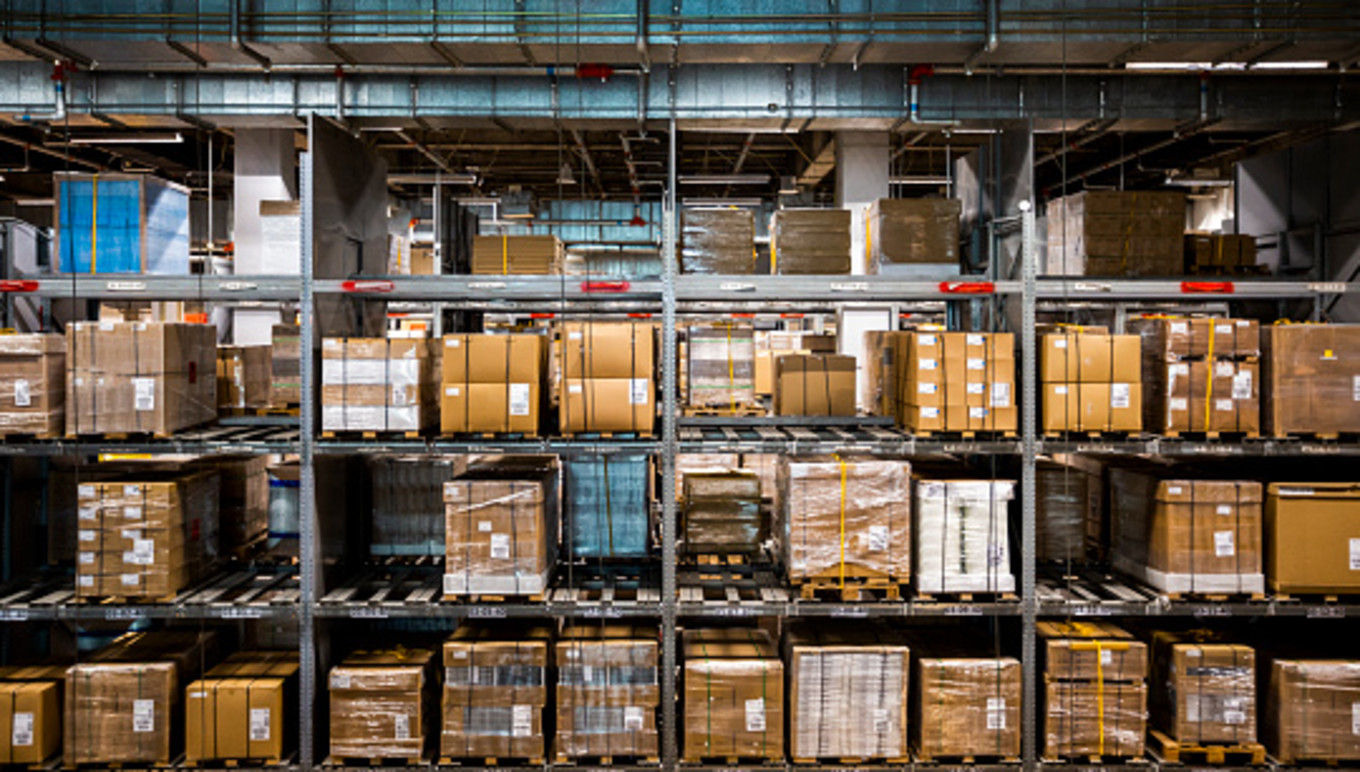Uitgelicht in deze blog
Here's Everything You Need to Know About Distribution ERP
Here's Everything You Need to Know About Distribution ERP

What Is Distribution ERP?
And, perhaps, just as important: what's the difference between your average, everyday ERP and an industry-specific distribution ERP?
ERP stands for enterprise resource planning. It's a software solution made to help you manage your business. It is a solution that integrates all areas of your operations: financials, communication with suppliers and customers, EDI, warehousing, analytics, demand planning, importing, transportation—you name it, there's a spot for it in your ERP.
A lot of providers have individual solutions to help you manage each of these departments independently. There's software for accounting, software for human resource activities, software for supply chain management. The only problem with all of these add-on solutions is there's no single source of truth. That's what an integrated ERP provides.
Now, a distribution-specific ERP gives you all of those same things we mentioned above. It provides you with the exact things a generic ERP does. Only it gives you more. It is a solution designed specifically to meet the needs and demands of your industry and your vertical within that industry.
As distributors, you have to manage things that, say, a discrete manufacturer won't have to. So it wouldn't do either of you any good to work with the same software. Rather, you need a solution that was designed with your business in mind.
Distribution ERP software manages shipping and transportation logistics, helps forecast product demand, supports on-time, in-full (OTIF) requirements, tracks inventory levels, offers built-in EDI services and enables you to calculate true landed costs. The right distribution ERP also handles shipping goods directly from your supplier to your customer, manages chargebacks, and breaks down your customer allowances, royalties and commissions—all of which impact your profitability.
It is a solution that all departments use—from sales to warehousing to logistics and accounting—all in an effort to unite data and synchronize your operations. Distribution ERP ensures your teams work from the same real-time information to make running a successful distribution business that much easier.
Who Needs a Distribution ERP?
Simply: anyone who works within the distribution sector. This could range from food distribution businesses to sports equipment companies to apparel and accessories to housewares and home furnishings businesses.
This software supports the business needs of the following industries:
Wholesalers and Distributors – Between changing customer demands, global market uncertainty and rising supply chain costs, there's a lot to manage. If you're selling to those big-box retailers—like Walmart and Costco—you want to be able to handle those shipments effectively. Are they going to distribution centers or direct to store? Or are you avoiding the giants and instead working with smaller, independent retailers? Or are you a drop-ship vendor for ecommerce retailers? Or directly shipping product from the supplier to the retailer? Regardless of your business model, a distribution ERP can supply the support you need.
Third-party Logistics (3PL) Providers – Because your business relies on empowering ecommerce merchants to do more with less, your operation must be as efficient as possible. Using technology to automate retailer order fulfillment is your key to success.
Food Distributors – As a food distributor, you need to effectively manage cost-to-serve, fluctuating demand, shifts in sales channels, customer time windows, and detailed transit requirements like refrigeration or separation of product types. This is what you get with a distribution ERP.
Though the products between distributors vary, the processes themselves are essentially the same. ERP software for distributors supports consignment inventory management; tracking and forecasting; managing kits, sets and assortments; the increased demands of peak season; unanticipated supply chain disruptions.
Five Signs You Need a Distribution ERP
If you're reading through this post and what we've written here resonates, it might be time to switch things up. You may be considering a new implementation, struggling with whether or not it's the right decision, frustrated by the shortcomings of your legacy system, or uncertain of how to move forward.
Regardless of why you're here, we're glad that you are. And to help you make that decision we've come up with a short list of signs that mean your organization could benefit from a distribution ERP solution.
1. Your customers aren't happy.
The happiness of your customers lies at the heart of your success. If they're not satisfied, you won't be in business for long. If you're struggling to communicate, keep up with demand, fill orders and get them out on time, it's time for you to invest in a solution that can help. And on the backend, your teammates and employees need the tools to push you forward. If they feel they're being asked to do too much with too little, you may not have staff long enough to keep your customers happy and coming back for more.
2. Your processes are clunky.
Whether you're working from manual processes or a generalized ERP, if you can't streamline, you can't grow. It really is as simple as that. When too much time is spent working through crucial but mundane tasks, you have less time, less energy and fewer resources to dedicate to innovation, customer satisfaction and growing your business.
3. Your data is all over the place.
High-level, accurate visibility into your data. And on top of it, a granular breakdown of what all that data means. Both of those elements are critical to your continued success as a distributor in today's market.
When working with disparate systems or an ERP that isn't made to support your industry's specific demands and obstacles, your data isn't going to be where it needs to be for you to harness its power. With these methods, you risk working from old or even inaccurate data. But, when you have all your data in a centralized place with a distribution ERP, you have a single source of truth available to all your departments. You can make bold, confident decisions to help push your company to be the very best it can be.
4. You can't grow.
As your customer base grows, as your business grows, so too must the software that helps you keep things up and running. But if you can't scale easily and quickly, you're going to struggle. It might be time to invest in a system that enables growth without also increasing overhead and labor.
5. You can't keep up with demand.
With the ecommerce revolution, you need the tools and industry-specific technology to keep up with its fast-paced and high-demand nature. Because drop shipping isn't going away anytime soon. If you haven't adjusted or modified your operations to acclimate yet, now is the time. A distribution ERP can help you get there.
All of these challenges boil down to one thing: insufficient software. Maybe you're working from a legacy ERP, perhaps you're working off multiple disparate systems, or maybe your ERP is too general to meet the needs of your business. Regardless of the why, if you see these warning signs it is time to consider an industry-specific distribution ERP to propel your organization to the next level.
Benefits of a Distribution ERP
For importers and distributors, having an industry-specific ERP can change the game. It offers so much more than a generic software solution does. Measurable benefits and ROI are just around the corner when you select the right software for your industry.
No matter the size of your business—whether you're a ten-person enterprise or you have 1,000 employees—you need a robust distribution ERP to help you grow your enterprise.
Like many software implementations, the specific benefits of an ERP for distributors vary depending on the requirements of your business, but here we’ve collated a few common ones that you can expect straight off the bat.
Improve operational processes, performance and profitability
Enhance business-wide visibility and agility
Optimize inventory management and improve forecasting accuracy
Reduce costs with profitability analysis and efficiency in your operations
Improve shipping speed and accuracy
Maintain retailer compliance
Increase customer satisfaction
By creating efficiencies across your enterprise, distributors can increase profits and ensure that the entire business uses the same real-time data.
How To Embrace Implementation of Distribution ERP Software
Deciding to go for it, to transform your business with a distribution ERP, it's a milestone. It's huge. It's a massive first step.
Next thing on the checklist is selecting the right ERP solution for your business needs.
And following that? Implementation.
The process can be intimidating and scary. And rightfully so. It's another big step. But it's a necessary step if you're planning on remaining viable in the long term.
There are lots of reservations and fears when it comes to implementation. But, it turns out, the more you know, the less daunting it all is.
88% of organizations consider their ERP implementation helped them succeed. - SelectHub
We've created a shortlist of the three most valuable practices for ERP implementation. We hope this list will provide you with a little more context, a little more information, and a little more peace of mind.
1. Include everybody.
This implementation will affect everybody—everyone from the CEO to the warehouse manager to the business analyst. This means that anybody using the system should have a representative involved in the implementation process. Users need to understand how the new ERP will affect their everyday operations. Only through understanding will there be full acceptance and acclimation.
2. Know your business needs.
You can't get what you want unless you know what you want. So before jumping into an distribution ERP implementation—which will overhaul the way things have always been done—know what you want to get out of it.
A distribution ERP is not a simple fix to a small problem. It's not easy or cheap, either. It's meant to add value, create efficiencies and streamline operations. If you're not ready for that just yet, that's okay. But it's essential you know what you're getting into before you get there. And because it can get complex, there's no time like the present to learn about how that process works.
3. Create a realistic timeline.
And one that includes testing and training.
All good things take time. Implementation won't be quick, and it won't happen overnight. But it will be worth it. It's all about managing your expectations along the way in terms of meeting your deadlines. It's also vital that you include time for testing and training as you work through your implementation. You want to take the time to do it right and ensure full adoption. That’s the only way to ensure you get the full ROI.
Why Choose Aptean Distribution ERP?
You have a lot of options when it comes to selecting your distribution ERP partner. The thing that sets us apart? Our distribution ERP was made by engineers and experts who genuinely understand the distribution industry. They've worked it, they've lived it. They know the struggles and opportunities because they've spent years working with distribution companies just like yours, meaning they can even offer industry best-practice recommendations and guidance to help you make the most of your operation.
Because here's the thing: one size doesn't fit all. Not by a long shot.
Which is why we've created software made specifically for you. Software as unique as your business is. We've used our knowledge and experience to create a solution that enables growth, supports efficiency and maximizes your supply chain.
But don't just take our word for it. Our customers think so too.
"Aptean Distribution ERP offered the best out-of-the-box functionality to meet our business needs. We were able to implement the solution without the need for additional IT resources or costly customizations." - Jon Richey, Operations Manager, Modus Furniture International
"Aptean Distribution ERP improved our processes and saved us money. A truly great improvement from where we were just eight months ago." - Luke Lundt, CFO, Northland Fishing Tackle
If you're looking for an ERP that does it all—that can accelerate the growth of your consumer goods import or distribution business, can create a single source of truth of all your data, can improve your efficiency and increase your profitability—look no farther.
We've got the distribution ERP for you. Are you ready for it? Reach out, now.
Klaar om uw bedrijf naar een hoger niveau te tillen?
We hebben gespecialiseerde ERP-oplossingen waarmee u elke uitdaging in uw branche aankunt.



 Ken Weygand | Solutions Architect, Aptean Distribution ERP
Ken Weygand | Solutions Architect, Aptean Distribution ERP